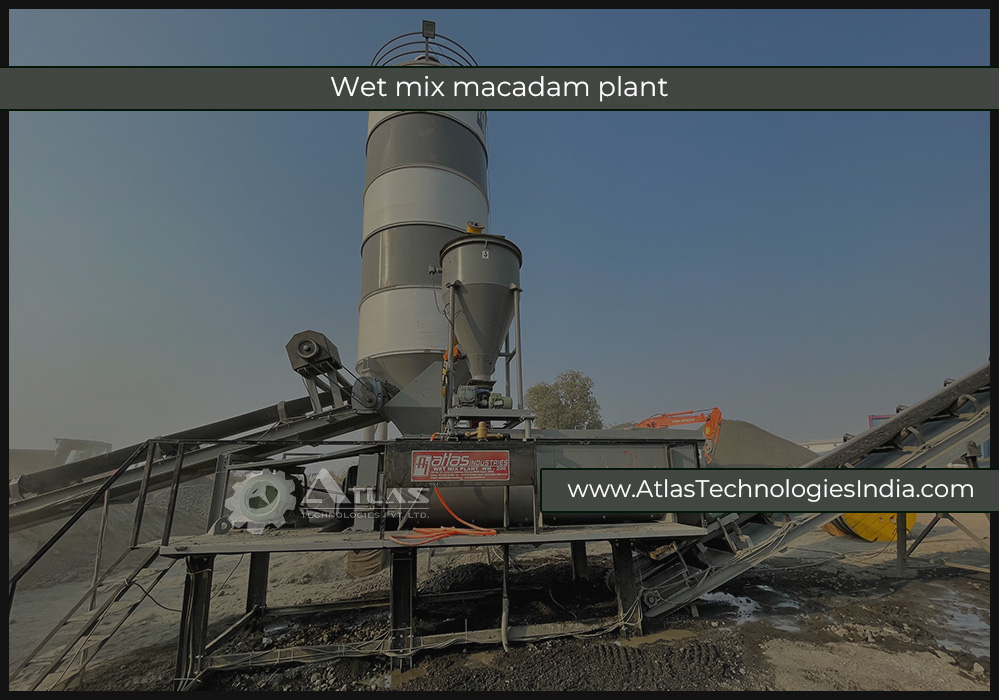Maintenance Free Soil Stabilization Plant for Road Projects
Building and maintaining roads is vital for economic growth! It enhances transportation, trade, and connectivity. However, traditional road construction techniques often face challenges. They depend on expensive materials like gravel or concrete for base layers, which not only drive up costs but also demand ongoing maintenance.
This is where a transformation concept helps! The concept is soil stabilization plants. It strengthens the base of the soil prior to road construction. This process is by use of a wet mix also known as a soil stabilization plant which allows for a better material that an make the base layer of the road better.
The process is crucial for building strong and lasting road foundations. These innovative systems offer a reliable, efficient, and eco-friendly way to stabilize soil, promising to transform road construction projects. It provides a more sustainable and low-maintenance solution.
Various stabilizing agents help to achieve the goal of road projects. A few of them include:
- Cement – A viable option to create a rigid and strong base.
- Lime – An inexpensive option to make the soil more stable, increase its work ability, and decrease its plasticity.
- Fly Ash – An economical way to improve the strength of the soil.

Benefits of Soil Stabilization Plants
Explore how Atlas make soil stabilization plants pioneering sustainable road projects, saving time and money. Have a look:
- Fewer Costs
It eliminates the use of costly materials used in road projects. It uses on-site soil that reduces the need for costly gravel or concrete. This translates to substantial savings in material acquisition and transportation. - Minimize Labor Charges
The automated nature of these plants minimizes manual labor requirements. It helps decrease the expenses of the entire road construction and development project. - Less Carbon Footprint
Extracting and transporting conventional practices may contribute significantly to greenhouse gas emissions. However, the soil stabilization plants lessen this impact by using readily available on-site resources. - Little Need of External Suppliers
Projects become less dependent on external material deliveries. It reduces the chances of errors and delays in completing the project on time. Moreover, it improves logistical challenges that often become a hurdle in the execution of the job timely. - Quick Project Completion
These plants provide efficient on-site processing of soil. This helps in completing road-based preparation at a faster pace.
Working of Soil Stabilization Plant
Soil stabilization plants integrate advanced technologies and materials to stabilize soil without the need for ongoing maintenance. These plants utilize a combination of mechanical processes, chemical additives, and innovative engineering designs to achieve long-lasting soil stability.
The exact procedure may vary according to the particular plant design and selected stabilizing agent. Yet, a quick overview is given below:
- Aggregate feeding
Aggregate feeding into different hoppers is done as per the aggregate sizes. - Screening
Primary screening of the aggregates is done before they enter the mixing unit. - Weighing of aggregates
This is an important step before the aggregates enter the mixing unit. As the aggregates are transferred through a conveyor they are weighed. - Stabilizing Agent Addition
The chosen stabilizing agent is precisely metered and mixed in the mixer. In many cases a small percentage of cement is added. - Mixing and Blending
The mixture undergoes a thorough mixing process to ensure homogenous distribution. - Moisture Control
Water is carefully added and adjusted to achieve the optimal moisture content for stabilization. - Stockpiling or Direct Application
The stabilized soil is either stockpiled for later use or directly transferred to the road base for compaction. Many higher capacity plant are equipped with storage silo’s that enhance the production of the wet mix macadam plant.
The Future of Road Construction
Soil stabilization plants are a big step forward in road construction. They offer a sustainable, cost-effective, and efficient solution, leading to greener infrastructure development. As this technology grows and becomes more common, we can expect a major shift towards more responsible and budget-friendly road construction practices.
Get ready for a greener future in road construction! Soil stabilization plants pave the way for sustainable infrastructure. They are transforming the way engineers build roads. They provide a cost-effective and durable way to stabilize soil, which can revolutionize the whole sector.
For all types of road projects, from city highways to rural paths, these advanced systems promise top performance and long-lasting strength, keeping our roads strong.
Equipment Used by Wet Mix Macadam Plant Manufacturer
The equipment used to make and mix stabilization material is crucial for project success. Atlas Technologies, a wet mix macadam plant manufacturer from India, offers high-quality products ranging from 100 to 200 tph capacity. Buying from a reliable manufacturer like Atlas ensures you get your money’s worth, with a smooth process from purchase to installation and excellent service support.
With over three decades of experience, Atlas provides durable road equipment tailored to your needs. In addition, the company emphasizes building friendly terms with its customers!
To get in touch, contact us: or call us at +91 97238 10565
